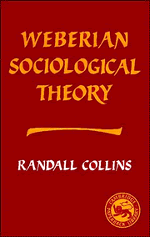Book contents
2 - Weber's last theory of capitalism
Published online by Cambridge University Press: 01 June 2011
Summary
Max Weber had many intellectual interests, and there has been considerable debate over the question of what constitutes the central theme of his life work. Besides treating the origins of capitalism, Weber dealt extensively with the nature of modernity and of rationality (Tenbruck, 1975; Kalberg, 1979; 1980; Seidman, 1980), and with politics, methodology, and various substantive areas of sociology. Amid all the attention which has been paid to these concerns, one of Weber's most significant contributions has been largely ignored. This is his mature theory of the development of capitalism, found in his last work (1961), General Economic History.
This is ironic because Weber's (1930) first major work, The Protestant Ethic and the Spirit of Capitalism, has long been the most famous of all. The argument that the Calvinist doctrine of predestination gave the psychological impetus for rationalized, entrepreneurial capitalism is only a fragment of Weber's full theory. But many scholars have treated it as Weber's distinctive contribution, or Weber's distinctive fallacy, on the origins of capitalism (e.g., Tawney, 1938; McClelland, 1961; Samuelsson, 1961; Cohen, 1980). Debate about the validity of this part of Weber's theory has tended to obscure the more fundamental historical and institutional theory which he presented in his later works.
The so-called “Weber thesis,” as thus isolated, has been taken to be essentially idealist. Weber (1930:90) defines his purpose in The Protestant Ethic as “a contribution to the manner in which ideas become effective forces in history.”
- Type
- Chapter
- Information
- Weberian Sociological Theory , pp. 19 - 44Publisher: Cambridge University PressPrint publication year: 1986
- 3
- Cited by

